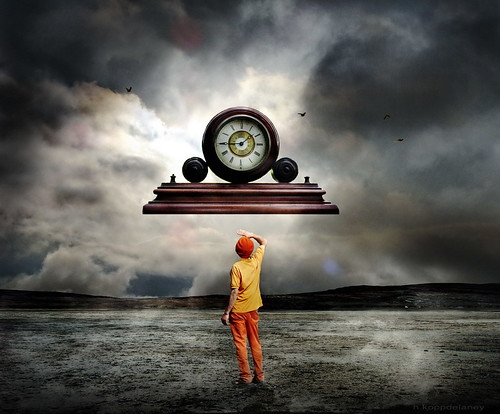April 2010
Vol. 1, Issue 4
Vol. 1, Issue 4
 Why is setting important to your novel? It develops the plot and is a vehicle that moves the plot forward, also, it strengthens the characters that must interact within the context of the setting.
Why is setting important to your novel? It develops the plot and is a vehicle that moves the plot forward, also, it strengthens the characters that must interact within the context of the setting.Setting has a purpose: it creates a mood. It includes:
- the location
- demographic
- geographic
- the environment
- and time
- past/present/future
- as well as time of day/week
- and season
- winter, spring, summer, winter
(at least on the planet Earth)
- winter, spring, summer, winter
Not terribly long ago I was reading a new novel published by one of my all-time favorites. As I devoured the book, I grew more and more puzzled. Was this a re-release of a book published some time ago? I didn't remember reading it, but the time frame was all wrong - it had to be a re-release. I flipped to the front and deciphered the publishing information. No, I was reading the very first printing. Huh. So why weren't the characters using more modern tools to help move the plot forward? Granted, it can take up to two years before a manuscript is transformed into a book, even longer. Still, these great inventions (Google, email, any number of mapping programs) were around and well used even back then. So why weren't these characters using them?
In all honesty, a lot of credibility was lost at that moment. I no longer cared about the characters. I no longer desired to become a part of their world. It was heartbreaking. My favorite author had failed me -- miserably.
The issue I had was with the time. There was nothing in the book, at least that which I read, to give me a clue as to whether I should be expecting it to have taken place any other time than the present.
 Time transcends every genre. Even timeless literary fiction requires an element of time. It's essential - if the story is to be believed by the reader, if the reader is to become immersed in the story.
Time transcends every genre. Even timeless literary fiction requires an element of time. It's essential - if the story is to be believed by the reader, if the reader is to become immersed in the story. What time of day is it? Is your character bumping around in the dark? Blinded by the desert sun? Wistfully gazing out the window as the sun sets?
Time is season. Are your characters hampered by the California costal fog? Does the gust of frigid wind swirl about them as they enter the Canadian lodge in the dead of winter? Are they slapping mosquitoes the size of birds as they picnic in Minnesota's sultry summer?
Time is past, present, or future. Is your protagonist prone to carrying a Winchester while seated in a saddle? Your antagonist hustling around town in a Hummer? Perhaps the entire city is submerged under water after a nuclear holocaust and folks get around via mini submarines.
Time lends authenticity. It sets the stage, provides useful props, lends a spatial perception, and draws your audience in.
Now go, carve some time out, and write - but be certain you give your characters and plot some time to work their way into the hearts of your fans by including time references in your - ahem - timely tale.
April Newsletter Home - Author Interview: Nancy Parra - Article: Conferences
Guest Author: Donna Hole - Resources: Character Worksheets - Article: Setting/Time
Regular Feature: Get It /Write/ Right - Regular Feature: Writing Prompts - Calendar of Events
Call for Submissions - Feedback - Previous Issues - Resources
Guest Author: Donna Hole - Resources: Character Worksheets - Article: Setting/Time
Regular Feature: Get It /Write/ Right - Regular Feature: Writing Prompts - Calendar of Events
Call for Submissions - Feedback - Previous Issues - Resources

1 comments:
Good advice. I try to keep that in mind in my own work. Thank goodness for critique buddies that catch those essential failings.
......dhole
Post a Comment